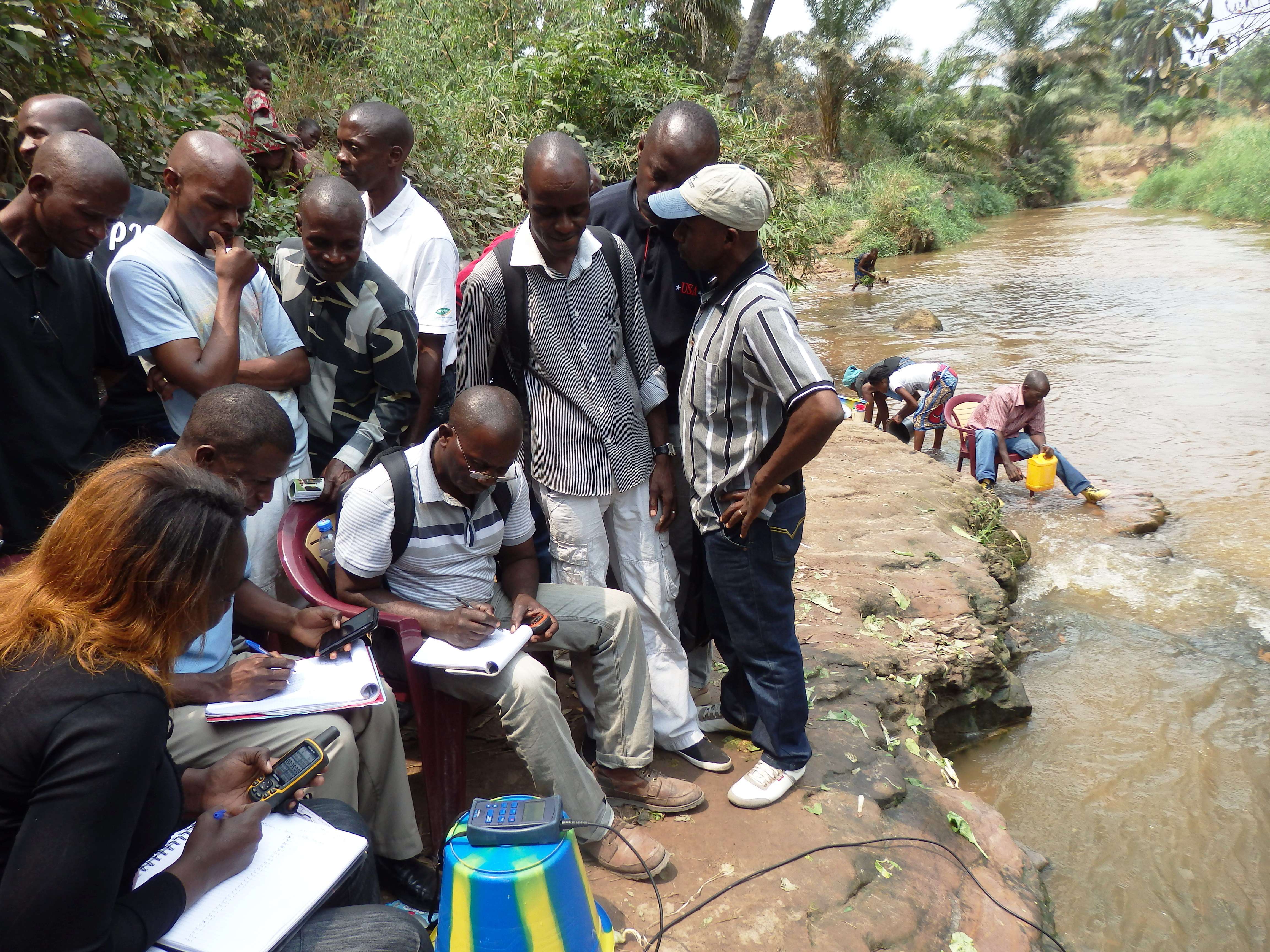

Al tratarse de la primera experiencia de la RDC en la aplicación tanto del enfoque Eco-DRR como de la GIRH, era de vital importancia desarrollar y reforzar progresivamente las capacidades a lo largo del tiempo, lo que implicaba:
- Sensibilización;
- Formación y talleres;
- Actividades de aprendizaje práctico en los lugares de demostración sobre el terreno;
- Visitas de campo y viajes de estudio tanto en el país como en la región.
Hubo un total de 71 formaciones y talleres. Estos abarcaron reuniones generales (inicio y presentación); talleres nacionales de sensibilización sobre Eco-DRR y GIRH; talleres relacionados con la GIRH, el papel de la Eco-DRR en la GIRH y la planificación de acciones; formaciones sobre seguimiento hidrometeorológico, seguimiento de la erosión del suelo y modelización del riesgo de inundaciones; formación sobre agrosilvicultura y producción de la cadena de valor; y formaciones sobre seguimiento de la pérdida de suelo y bioingeniería para reducir la erosión del suelo.
El proyecto hizo hincapié en la importancia de vincular al grupo local AUBR/L con los ministerios competentes de la Administración nacional y otros socios, cuyas capacidades también se reforzaron para que el trabajo sea sostenible en el tiempo.
El proyecto también creó nuevas asociaciones, que facilitaron viajes de estudio en el país y en la región.
Una parte importante del desarrollo de capacidades tuvo lugar sobre el terreno, como parte del "aprendizaje práctico" a través de la ejecución de las intervenciones sobre el terreno. Aunque su objetivo era apoyar las intervenciones sobre el terreno, también se diseñaron para establecer sistemas gestionados localmente que fueran duraderos. Por lo tanto, también se añadieron cursos de formación en función de las necesidades detectadas durante la ejecución del proyecto. Por ejemplo, se determinó que era necesario crear capacidad también sobre cómo vender productos de la agrosilvicultura (no sólo sobre cómo aplicar la agrosilvicultura) y sobre la gestión de incendios forestales después de que un incendio destruyera una zona de reforestación.